Fire Damage Photo Gallery
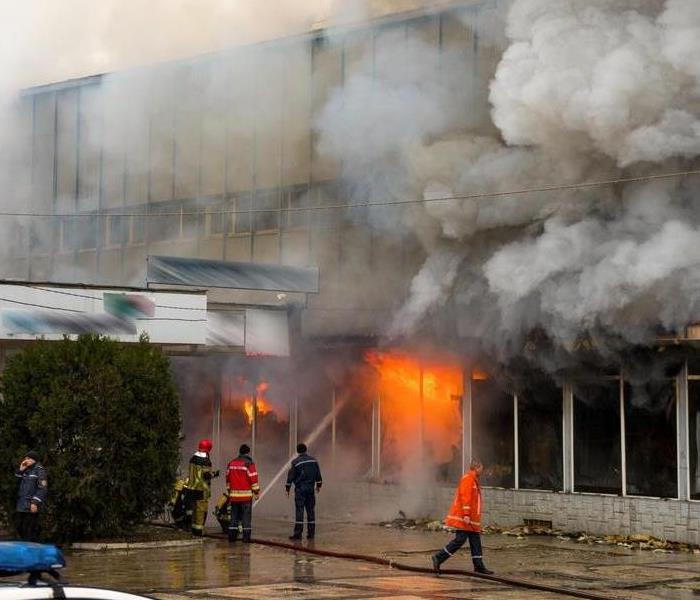
Business/Commercial Fire Damage
When your business suffers a fire-related loss you need to respond quickly and efficiently. SERVPRO will work with you and your insurance company to get you back to work ASAP.
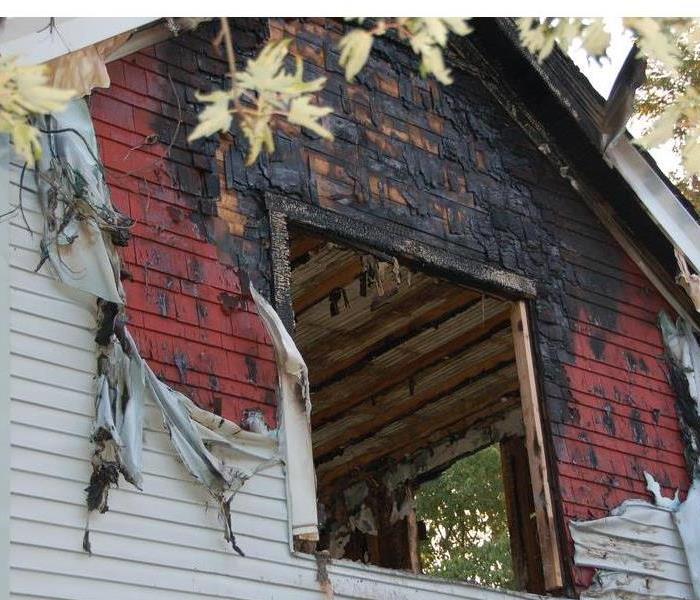
Fire Damage
The amount of damage and loss from a fire can be devastating. Even if your home looks like this one, SERVPRO can help you recover as quickly as possible. We are here to help 24/7 365.
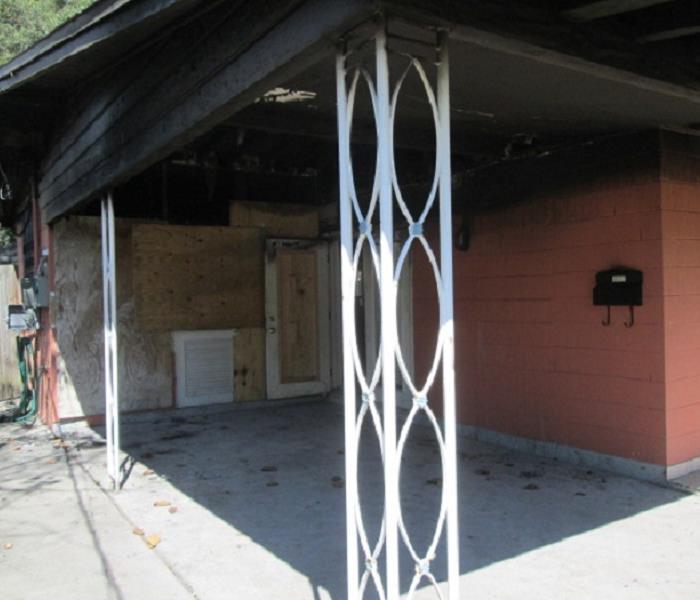
Hidden Dangers of Fire Damages
The dangers caused by a fire aren’t extinguished when the flames are put out. Yes, it can be dangerous structurally to enter a fire damaged home, but did you know that there are also many hidden dangers associated with fires? Fire damage has a way of lingering for years and if it is not cleaned up and attended to properly you probably won’t get all of the soot and mold. Which means it is dangerous for your health as well just for example:
- It Might Have Disturbed Asbestos
- The Soot Can Get Into Your Bloodstream
What to do in the Event of an Electrical Fire?
In case of an electrical fire, make sure you do not use water to put out the fire. If the fire is small and you see something starting to smoke and catch on fire, turn off the circuit at the breaker, if its plugged into a wall then unplug and use a fire extinguisher to put out any flames. If no appropriate fire extinguisher is available, you can also use baking soda to extinguish an electrical fire. Typically, an overloaded circuit will flip a breaker. If you know a circuit is being overloaded but the breaker didn't trip, if you can safely do so, you should turn off thebreaker yourself or flip the main breaker to the whole house. If you have had a fire, find an electrician to evaluate what you'll need to do to prevent another fire from occurring.
Do's and Dont's After a Fire
Do's
- Limit movement in the home to prevent soot from being embedded into upholstery and carpets.
- Keep hands clean so as not to further soil upholstery or walls.
- Place clean towels or linens on rugs, upholstery and carpet traffic areas.
- If electricity is off, empty freezer and refrigerator and prop doors open.
- Wash houseplants.
- Change HVAC filter.
Dont's
- Don't attempt to wash any walls or painted surfaces or shampoo carpet without contacting your SERVPRO Franchise Professional.
- Don't attempt to clean any electrical appliances that may have been close to fire.
- Don't use any canned or packaged food or beverages that may have been stored near the fire.
- Don't turn on ceiling fixtures if ceiling is wet. The wiring may be damaged.
- Don't send garments to an ordinary dry cleaner. Improper cleaning may set smoke odor.
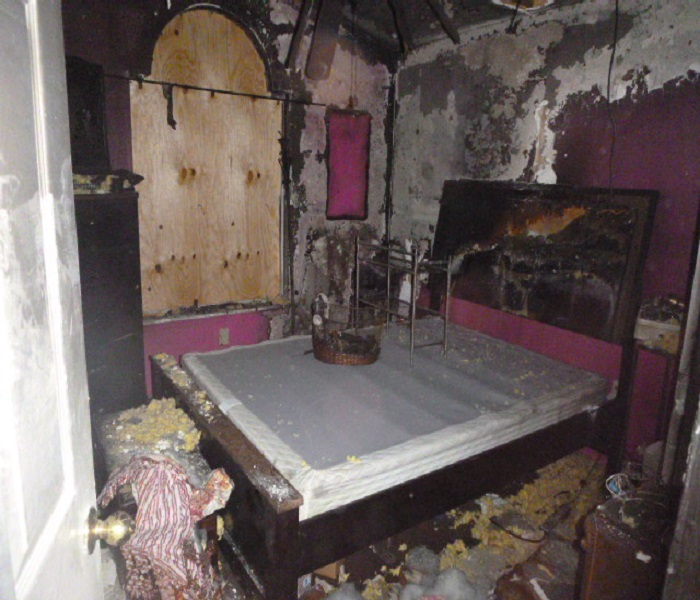
Bedroom Fire Safety
Bedrooms are where fires often start. More than 600 lives were lost due to fire that started in the bedroom. Common causes of these fires are electrical devices that were left unattended. These are just some basic reminders to keep you safe.
- Children are at a higher risk for deaths caused by bedroom fires. They are prone to playing with matches. In their bedroom, minimize materials that are easily combustible. Inform your child of the dangers of playing with fire.
- Do not plug cords near beds. Do not trap cords near the wall or place them under carpets. Also, do not leave laptops on your bed.
- Never smoke in bed – No matter how conscious you are.
Bedroom fire safety is not difficult. Giving attention to small details can make a big impact, and will give you safety and peace of mind. Emergency preparedness and knowledge of fire safety are a must in order to protect your family.
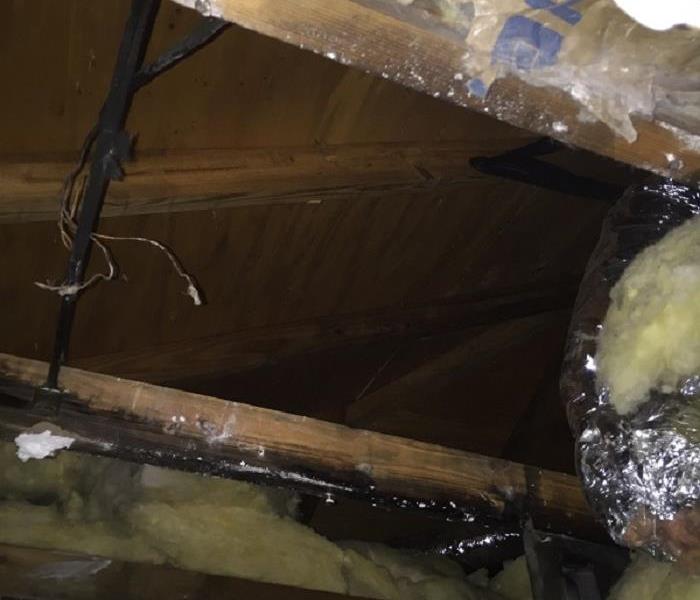
Some Leading Causes of Attic Fires
Electrical Malfunction
The single most common cause of residential attic fires is electrical malfunction. When circuits are overloaded and the breaker fails to respond appropriately, the excess “draw” could result in a fire.
Heating
Roughly 5% of residential attic fires are caused by home heating systems.
If your home is run on a traditional heating, ventilation and cooling (HVAC) system, it’s a good idea to have it inspected at least once a year.
Natural
An estimated 13% of residential attic fires are caused by natural sources. This may include lighting, fallen trees or even rain water dripping onto electrical outlets and wires.
Unfortunately, there’s no way to completely protect your attic against natural fires such as this. However, you can ensure the roofing is intact and use fire-retardant materials to decrease the chance of natural-cause fires.






 24/7 Emergency Service
24/7 Emergency Service